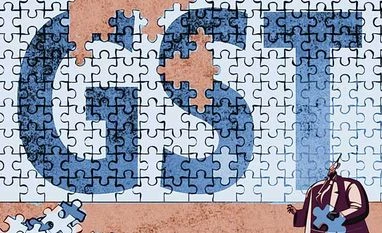This has dashed any hopes of the GST being rolled out by April 2016. The tax reform would now be taken up in the Budget session in February-end.
At an all-party meeting convened by Rajya Sabha Chairman M Hamid Ansari, the Opposition, including the Congress, agreed it would ensure the passage of at least half-a-dozen Bills and allow the House to debate issues such as price-rice, agrarian crisis, impact of floods and drought, the political crisis in Arunachal Pradesh and the intolerance issue. However, consensus eluded on the GST and real estate (regulation and development) Bills.
Ansari described the hour-long meeting as "good". The Bills that the meeting agreed the House should pass before its session concluded on Wednesday are the Scheduled Castes and Scheduled Tribes (Prevention of Atrocities) Amendment Bill, the Appropriation Bills, the Anti-Hijacking Bill, the Atomic Energy Amendment Bill, the Commercial Courts Ordinance Bill and the Arbitration and Conciliation Amendment Bill. It was agreed that two other Bills - the Whistleblowers Protection (Amendment) Bill and the Juvenile Justice (Care and Protection of Children) Bill - would be referred to Rajya Sabha select committees. The fate of the Child Labour (Protection and Regulation) Amendment Bill would be decided after further consultations.
Leader of Opposition in the Rajya Sabha Ghulam Nabi Azad disputed the government's claim that the GST Bill was discussed in the meeting. He said only Bills where there was an agreement were discussed. "Everybody is aware that there is no consensus on GST. Not only the Congress, but other parties also had reservations on GST," he claimed.
Minister of State for Parliamentary Affairs Mukhtar Abbas Naqvi said several parties expressed concern at the Rajya Sabha not transacting any business and proposed to pass the pending Bills by sitting late. Naqvi said Finance Minister Arun Jaitley appealed to the Opposition parties to past the GST Bill, but the Congress disagreed.
The Opposition parties, primarily the Congress which is the single largest party in the Rajya Sabha, had disrupted house proceedings after the session started on November 26. The reasons for disruptions ranged from the Governor's role in Arunachal Pradesh, the CBI raid on a Delhi government official and "politics of vendetta" by the government.
Naqvi said there was no discussion at the meeting about the Chairman of Rajya Sabha being given more powers to act against members for routinely disrupting the House. Shiromani Akali Dal MP Naresh Gujral asked the Bharatiya Janata Party and the Congress to resolve their differences to allow the House to function.
The Rajya Sabha has only passed one Bill in the entire session, while the Lok Sabha functioned despite protests by the Congress.
| BILL AGENDA |
|
You’ve hit your limit of {{free_limit}} free articles this month.
Subscribe now for unlimited access.
Already subscribed? Log in
Subscribe to read the full story →

Smart Quarterly
₹900
3 Months
₹300/Month
Smart Essential
₹2,700
1 Year
₹225/Month
Super Saver
₹3,900
2 Years
₹162/Month
Renews automatically, cancel anytime
Here’s what’s included in our digital subscription plans
Access to Exclusive Premium Stories Online
Over 30 behind the paywall stories daily, handpicked by our editors for subscribers


Complimentary Access to The New York Times
News, Games, Cooking, Audio, Wirecutter & The Athletic
Business Standard Epaper
Digital replica of our daily newspaper — with options to read, save, and share


Curated Newsletters
Insights on markets, finance, politics, tech, and more delivered to your inbox
Market Analysis & Investment Insights
In-depth market analysis & insights with access to The Smart Investor


Archives
Repository of articles and publications dating back to 1997
Ad-free Reading
Uninterrupted reading experience with no advertisements


Seamless Access Across All Devices
Access Business Standard across devices — mobile, tablet, or PC, via web or app



)
